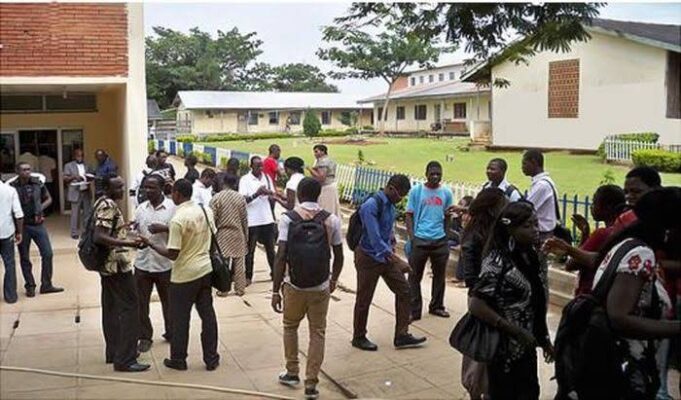The ongoing strike by the Academic Staff Union of Universities (ASUU) and other other university-based unions has affected the admission of 461,745 prospective students billed to get into various universities.
The Joint Admissions and Matriculations Board (JAMB) confirmed that universities suspended processes of admissions due to the lingering industrial action.
JAMB, in a document, noted that “some institutions confirmed suspending the process because of the ASUU strike; ASUU strike is a factor; many institutions are yet to commence 2021 admissions despite repeated appeals.”
It was also gathered that a total of 36,947 candidates of the 2021 Unified Tertiary Matriculation Examinations (UTME) processed their admissions in private institutions.
The strike by ASUU, Senior Staff Association of Nigerian Universities, Non-Academic Staff Union of Universities, and other allied institutions have crippled academic activities in federal and state universities.
Although strike is not new in Nigeria’s academia, it is getting longer under President Muhammadu Buhari-led administration.
For example, under the administration of former President Olusegun Obasanjo, ASUU embarked on strike in 1999 for a period of 150 days; 90 days in 2001; 14 days in 2002; 180 days in 2003; 14 days in 2005; three days in 2006 and 90 days in 2007.
Under the administration of late Umaru Yarad’ua, the union went on strike in 2008 for seven days; 120 days in 2009.
Under former President Goodluck Jonathan, the union left the classroom in 2010 for a period of 150 days; 2011 for a period of 59 days; 150 days in 2013.
But in the last 7 years of the President, ASUU embarked on strike four different times.
In 2017, the union embarked on strike for a period of 30 days, while in 2018, the union shut down academic activities for a period of 90 days.
In the year 2020, ASUU embarked on strike for 270 days; which stakeholders describe as the longest strike in the history of Nigeria.
So far, in 2022, ASUU has been on strike for close to 186 days with no end in sight.
The JAMB data also noted that for the admissions for 2021/2022 session, which ought to have come to an end was still ongoing as a result of the strike.
The body explained that a total of 774,411 admission quotas were given to Nigerian universities to be split between federal, state and private universities.
READ ALSO: How Buhari’s anger led to implementation of ‘no work no pay rule’ against ASUU
For the federal universities, a total of 424,442 quotas were allocated with only 136,527 admissions were processed despite over 595,757 candidates applying to 10 federal universities alone.
State universities got a total of 232,801 admissions quota but were only able to process admissions of 139,192 before the commencement of the strike.
It added that a total of 117,411 admission quotas were awarded to private universities but the board noted that only 36,947 quotas were filled.
Further analysis of the data revealed that some programmes also had lots of unfilled admission quotas.
For instance, Medicine/Pharmacy, which had a total of 39,850, only admitted 33,671 before commencement of the strike, while Engineering, Technology only admitted 35,051 despite a total of 58,451 quotas.
While Arts and Humanities admitted 31,478 despite a quota of 47,727, Social Sciences departments only admitted 53,723 applicants despite the 89,747 admissions quota given by JAMB.
In Science departments with 121,696 quotas only admitted a total of 70,221; for Law, the board noted that only 5,630 quotas were filled despite the 8,055 quotas allocated.
Giving further statistics, JAMB indicated that the strike also affected admissions for the 2020 exercise.
The board, however, gave the total of admissions processed at 551,553.
Meanwhile for the 2022/2023 admission, the board noted that a total of 1,649,310 candidates applied for university admission.
Alhough the board did not give a breakdown of the applications by category of universities applied to, it noted that over 500,000 of these applicants applied to 10 federal universities namely University of Ilorin; University of Lagos; Nnamdi Azikwe University; Bayero University Kano; University of Benin; Federal University Oye-Ekiti; Obafemi Awolowo University; University of Nigeria; Ahmadu Bello University; and the University of Ibadan.
- Tinubu: APC correcting PDP’s mess in 16 years’ regime - September 5, 2022
- Oil marketers embark on strike in northern states over N70bn claims - September 5, 2022
- FG files fresh charges against Abba Kyari, Ubua, seizes properties - September 5, 2022










